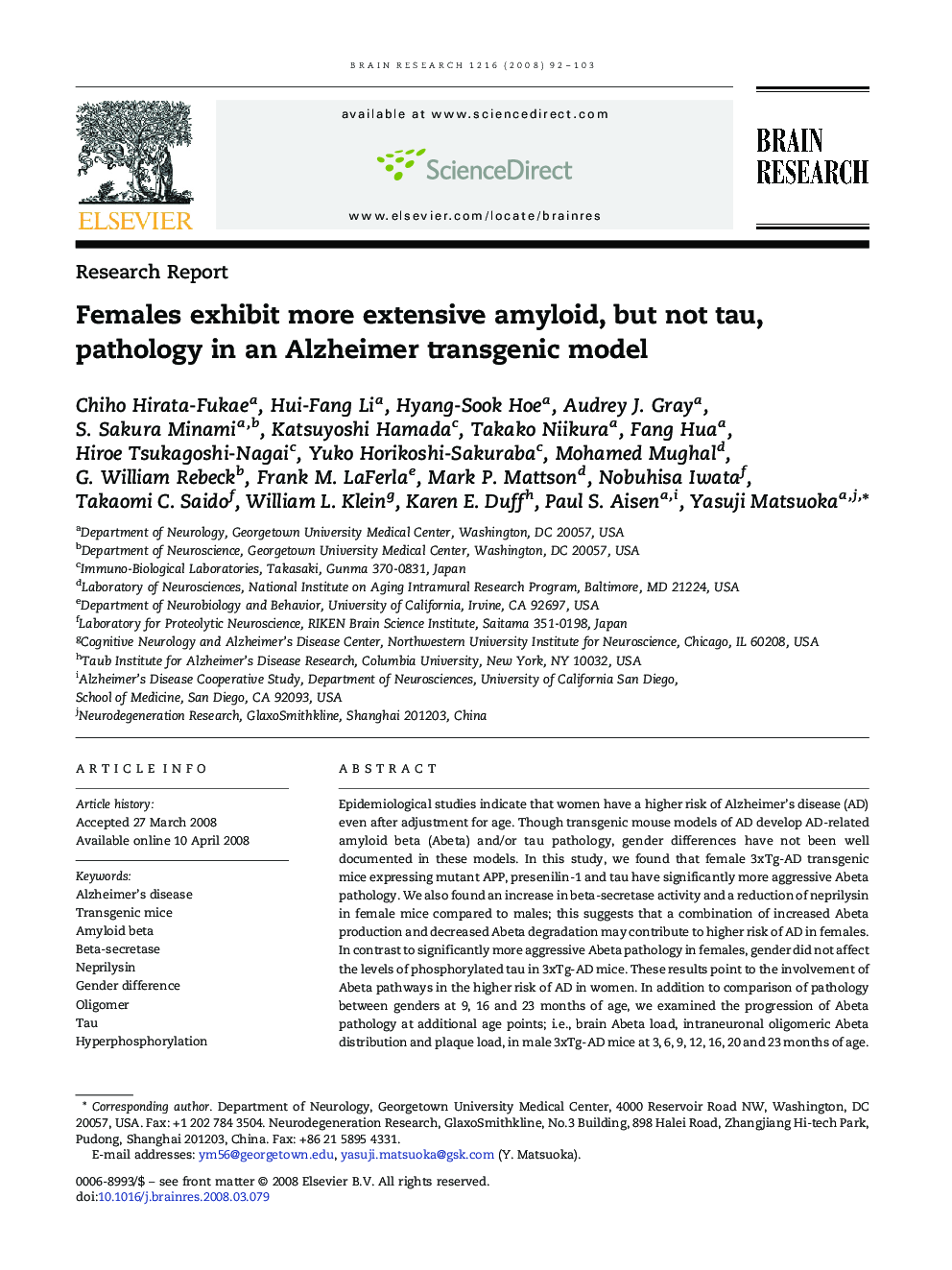| Article ID | Journal | Published Year | Pages | File Type |
|---|---|---|---|---|
| 4329734 | Brain Research | 2008 | 12 Pages |
Epidemiological studies indicate that women have a higher risk of Alzheimer's disease (AD) even after adjustment for age. Though transgenic mouse models of AD develop AD-related amyloid beta (Abeta) and/or tau pathology, gender differences have not been well documented in these models. In this study, we found that female 3xTg-AD transgenic mice expressing mutant APP, presenilin-1 and tau have significantly more aggressive Abeta pathology. We also found an increase in beta-secretase activity and a reduction of neprilysin in female mice compared to males; this suggests that a combination of increased Abeta production and decreased Abeta degradation may contribute to higher risk of AD in females. In contrast to significantly more aggressive Abeta pathology in females, gender did not affect the levels of phosphorylated tau in 3xTg-AD mice. These results point to the involvement of Abeta pathways in the higher risk of AD in women. In addition to comparison of pathology between genders at 9, 16 and 23 months of age, we examined the progression of Abeta pathology at additional age points; i.e., brain Abeta load, intraneuronal oligomeric Abeta distribution and plaque load, in male 3xTg-AD mice at 3, 6, 9, 12, 16, 20 and 23 months of age. These findings confirm progressive Abeta pathology in 3xTg-AD transgenic mice, and provide guidance for their use in therapeutic research.
